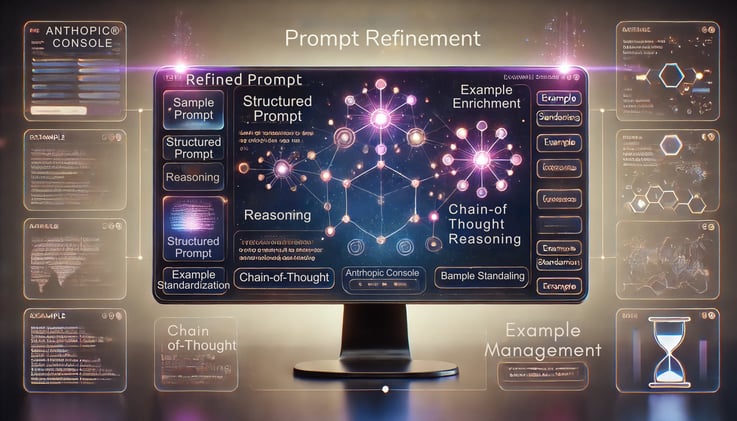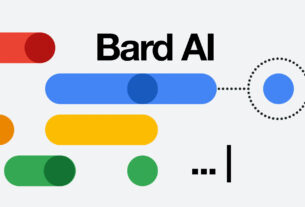
Anthropic Console Introduces New Tools for Refining Prompts and Examples
Introduction
Anthropic has rolled out new features in its developer console, allowing users to refine prompts and manage examples directly within the interface. These tools aim to simplify the implementation of prompt engineering best practices, helping developers build more reliable AI applications with Claude.
Why Prompt Quality Matters
Effective prompts are critical to achieving high-quality model completions. However, prompt optimization often requires expertise, time, and adjustments tailored to specific models. Anthropic’s prompt improver addresses these challenges by automating the refinement process. This feature is perfect for refining prompts initially designed for other AI models and enhancing the effectiveness of hand-crafted prompts.
What Makes a Prompt Effective?
A well-crafted prompt should be clear, concise, and unambiguous. It should provide enough context for the model to understand the task at hand and produce accurate results. Anthropic’s prompt improver optimizes prompts using advanced techniques such as:
Chain-of-Thought Reasoning
Encourages step-by-step problem-solving to improve response accuracy.
Example Standardization
Converts examples into a consistent XML format for clarity and processing.
Example Enrichment
Enhances examples with detailed reasoning aligned with the new prompt structure.
Rewriting
Refines the prompt structure while correcting minor grammatical or spelling issues.
Prefill Addition
Includes prefilled Assistant messages to guide Claude’s actions and enforce specific output formats.
Real-World Impact
Anthropic’s testing reveals impressive results:
- 30% accuracy improvement in a multilabel classification task
- 100% word count adherence in summarization tasks
These gains highlight the practical benefits of prompt optimization, particularly for adapting prompts written for other models or enhancing handwritten ones.
Example Management Made Simple
The ability to manage examples directly in the Anthropic Console Workbench makes it easier to create and refine structured input/output pairs. Key features include:
- Adding new examples with clear input/output formats
- Editing existing examples to fine-tune response quality
- Claude-Driven Example Generation: Automatically generates synthetic examples to streamline the process.
Incorporating examples into prompts boosts:
- Accuracy: Reduces misinterpretation of instructions.
- Consistency: Ensures outputs follow the desired format.
- Performance: Enhances Claude’s ability to handle complex tasks.
Testing and Evaluating Prompts
The console now includes a prompt evaluator, enabling developers to test prompts under various conditions. To benchmark performance:
- Use the ‘ideal output’ column in the Evaluations tab to grade model outputs on a 5-point scale
- Provide feedback to refine prompts further, iterating until achieving satisfactory results
The tool also supports flexible modifications, such as converting outputs from XML to JSON formats based on user requests.
Available Now
These features – prompt improver, example management, and evaluation tools – are available to all users in the Anthropic Console. Developers can leverage these capabilities to build more accurate, consistent, and robust AI applications.
Looking Ahead
Anthropic’s new tools mark a significant step in streamlining prompt engineering for developers. By automating improvements and simplifying example management, the console empowers users to create highly reliable prompts with less effort.
As developers continue to refine their workflows using these features, Claude’s capabilities can be better tailored to meet the diverse needs of real-world applications.
Learn More
To learn more, visit Anthropic’s documentation on prompt improvement and evaluation.
Editor’s Note
This article was created by Alicia Shapiro, CMO of AiNews.com, with writing, image, and idea-generation support from ChatGPT, an AI assistant. However, the final perspective and editorial choices are solely Alicia Shapiro’s. Special thanks to ChatGPT for assistance with research and editorial support in crafting this article.






